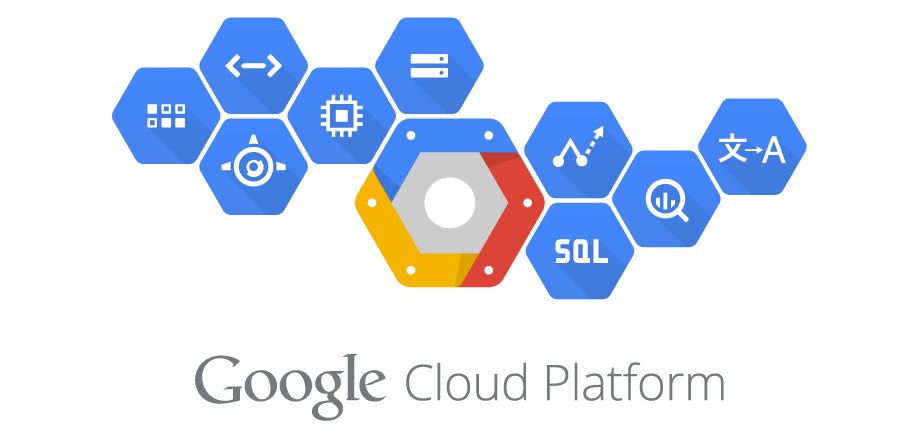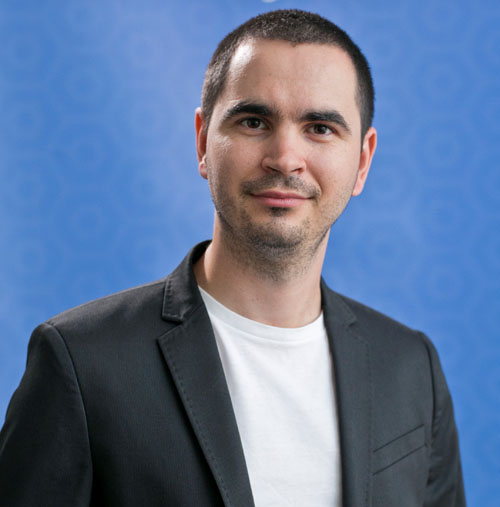CPD200: Developing Solutions for Google Cloud Platform

Next training
By request

Course Description
This 3 day instructor-led class introduces participants to Solution Development for Google Cloud Platform. Through a combination of instructor-led presentations, demonstrations, and hands-on labs, students learn how to develop cloud-based applications using Google App Engine, Google Cloud Datastore, and Google Cloud Endpoints.
3 days (24 hours)
This class is intended for experienced application developers who want to learn how to migrate applications to the cloud or to create native, cloud-based applications for Google Cloud Platform.
At the end of this course, participants will be able to:
- Manage Google Cloud Source Repositories using the Google Cloud Platform Console
- Test an App Engine application using the App Engine SDK
- Access the App Engine Development Server Console
- Create an API using Google Cloud Endpoints
- Test a Cloud Endpoint API using the API Explorer
- Deploy an application to App Engine using the App Engine SDK
- Design, structure and configure an App Engine application using multiple services
- Create Client IDs using the Google Cloud Platform Console
- Secure App Engine services and Cloud Endpoints APIs using authentication
- Configure and upload new versions of App Engine services
- Integrate Google Cloud Logging into App Engine applications
- Review quota usage in a Google Cloud Platform project
- Integrate different types of storage with App Engine applications
- Create and implement a data model for use with Google Cloud Datastore
- Implement a variety of queries in Google Cloud Datastore
- Update the index configuration in Google Cloud Datastore
- Implement transactions using Google Cloud Datastore
- Review Google Cloud Trace reports in the Google Cloud Platform Console
- Integrate the Memcache API into an App Engine application to increase performance
- Configure, run and review the output of Google Cloud Security Scanner
- Configure the scaling behaviour of individual App Engine Services
- Create App Engine handlers for Push Task Queues
- Send email from an App Engine application using the Mail API
- Schedule Tasks in App Engine using the Cron Service
- Update the configuration of the Cron Service
- Secure Task Push, and Cron Service handlers
- Export Google Cloud Platform data from a project
- Delete Google Cloud Platform projects and resources
English, Romanian
Instructor-led class, Instructor-led online
Course Outline
Developing Solutions for Google Cloud Platform
- Identify the advantages of Google Cloud Platform for solution development
- Identify services and tools available for solution development using Google Cloud Platform
- Compare examples of Google Cloud Platform architectures for solution development
Lab: Google Cloud Source Repositories
- Create a project for the course
- Use Google Cloud Shell to develop and test an application using the App Engine SDK
- Configure Google Cloud Source Repositories to remotely host code in Google Cloud Platform
Google Cloud Endpoints
- Identify Cloud Endpoints features
- Explain how to develop APIs using Cloud Endpoints
- Compare development of Cloud Endpoints APIs using Java and Python
Lab: Google Cloud Endpoints
- Review and edit Cloud Endpoints source code
- Deploy an application to App Engine
- Test a Cloud Endpoints API in the APIs Explorer
App Engine Services
- Explain the use cases for App Engine Services and how to use them in structuring an application
- Identify how to deploy and access individual App Engine services
- Explain how to route requests to individual services
Lab: Google App Engine Services
- Review the code for a sample application used throughout the remainder of the course
- Deploy multiple App Engine services to a single project
User Authentication and Credentials
- Compare authentication and authorization
- Identify options for securing App Engine applications
- Explain the use cases for Application Default Credentials
Lab: User Authentication
- Configure the OAuth consent screen and create a client ID
- Modify Conference Central to use your client ID
- Test Conference Central authentication
- Modify your admin service to require administrator rights
Managing App Engine Applications
- Explain the use cases for App Engine versions
- Identify how to access App Engine monitoring and logging services
- Explain the use of resource quotas and how to troubleshoot related errors
Lab: Managing Google App Engine Applications
- Review App Engine settings, quotas, instances, and logs
- Update App Engine services to log to Cloud Logging
- Deploy new versions of your default and admin services
- Route all traffic to a new version of the default service
Storage for Solution Developers
- Compare storage options for App Engine Solutions Developers
- Explain the purpose of, and use cases for, Google Cloud Storage
- Compare Cloud SQL integration with App Engine and Compute Engine
- Explain basic Cloud Datastore terminology and concepts, including Entity Groups
Lab: Google Cloud Datastore
- Update an existing application to save data persistently
- Test saving application data to Cloud Datastore
- List and view Cloud Datastore entities in the Google Cloud Platform Console
Queries and Indexes
- Identify available query filters for Cloud Datastore
- Compare single-property, and composite indexes in Cloud Datastore
- Configure and optimize indexes for Cloud Datastore
Lab: Google Cloud Datastore Queries and Indexes
- Add support for querying entities by kind and ancestor
- Add query filters to Cloud Datastore searches
- Update an index configuration to support composite indexes
Entity Groups, Consistency, and Transactions
- Identify the steps of a Cloud Datastore write
- Compare strong and eventual consistency in Cloud Datastore
- Identify how to achieve strongly consistent queries
- Identify best practises for Cloud Datastore transactions
Lab: Google Cloud Datastore Transactions
- Add support for using Cloud Datastore transactions to an application
- Add a Cloud Endpoint API method to view data from a different service
App Engine Performance and Optimization
- Identify Memcache types, use cases, and implementation patterns
- Compare available scaling behaviours for application services
- Configure application scaling for individual services
Lab: Google App Engine Performance and Optimization
- Review Cloud Trace reports for an application
- Configure and run a security scan for an application
- Update an application to make use of memcache
- Configure and test application scaling for application services
Task Queues
- Compare Push and Pull Queues
- Explain how to schedule tasks with the Cron Service
- Configure and securing Push and Pull Queues, as well as the Cron Service
Lab: Task Queue API
- Add a task handler to send an email using the Mail API
- Add a Cron Service handler and configuration to an existing application
Lab: Deleting Google Cloud Platform Projects and Resources
- Export Google Cloud Platform data from a project
- Delete Google Cloud Platform resources
- Shut down a Google Cloud Platform project
Please note that this is preliminary information which might be subject to change.
Learn more about related courses
About the trainer

Bogdan Nourescu
Google Cloud Platform Authorized Trainer | Web Development
Bogdan Nourescu is Atlas Networking Cloud trainer and the only Google Cloud Platform Authorized Trainer from Romania. Senior Web App Developer with 5+ years expertise in designing highly scalable apps, Bogdan has been working with Google Cloud Platform since the beginning of his career, as well with with technologies like JQuery, Polymer, App Engine, Compute Engine, Cloud Storage, in order to develop apps for different industries.
As a trainer, Bogdan is focused on teaching developers and other IT specialists why Cloud is the way to go and how to use it to achieve maximum potential. He is also passionate about exploring new technologies, and always curious to find solutions to integrate them into existing or new projects.
Starting February 2016, Bogdan is delivering a Web Development class within The Informal School of IT – Bucharest.

